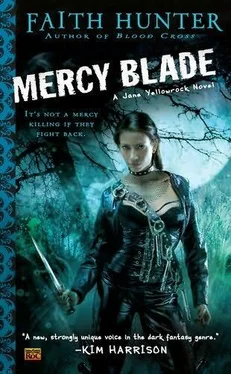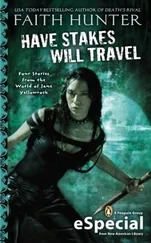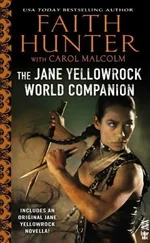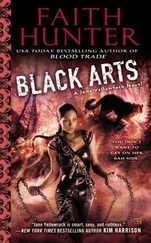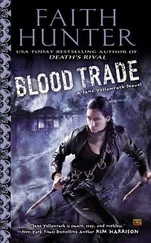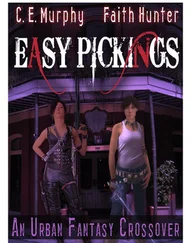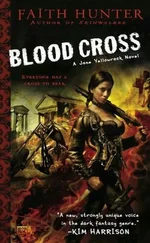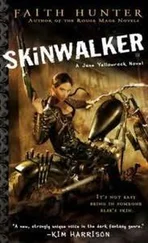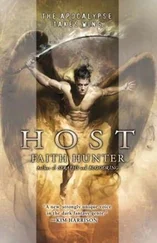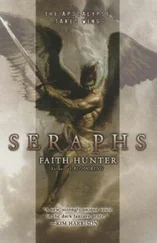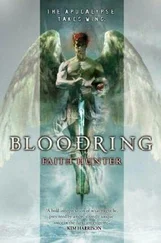Faith Hunter - Mercy Blade
Здесь есть возможность читать онлайн «Faith Hunter - Mercy Blade» весь текст электронной книги совершенно бесплатно (целиком полную версию без сокращений). В некоторых случаях можно слушать аудио, скачать через торрент в формате fb2 и присутствует краткое содержание. Год выпуска: 2011, ISBN: 2011, Издательство: ROC, Жанр: sf_fantasy_city, на английском языке. Описание произведения, (предисловие) а так же отзывы посетителей доступны на портале библиотеки ЛибКат.
- Название:Mercy Blade
- Автор:
- Издательство:ROC
- Жанр:
- Год:2011
- ISBN:978-1-101-47677-2
- Рейтинг книги:5 / 5. Голосов: 1
-
Избранное:Добавить в избранное
- Отзывы:
-
Ваша оценка:
- 100
- 1
- 2
- 3
- 4
- 5
Mercy Blade: краткое содержание, описание и аннотация
Предлагаем к чтению аннотацию, описание, краткое содержание или предисловие (зависит от того, что написал сам автор книги «Mercy Blade»). Если вы не нашли необходимую информацию о книге — напишите в комментариях, мы постараемся отыскать её.
Mercy Blade — читать онлайн бесплатно полную книгу (весь текст) целиком
Ниже представлен текст книги, разбитый по страницам. Система сохранения места последней прочитанной страницы, позволяет с удобством читать онлайн бесплатно книгу «Mercy Blade», без необходимости каждый раз заново искать на чём Вы остановились. Поставьте закладку, и сможете в любой момент перейти на страницу, на которой закончили чтение.
Интервал:
Закладка:
Breakfast? See you at breakfast tomorrow? That’s it? Then I remembered the calls and texts he’d received on the trip back. He was needed, and I’d bet my left big toe he was headed back undercover with the visiting were-cats.
Disgruntled, I locked the side gate, hauled my bags and boxes inside, and put away the clothes and other stuff. Little of what I owned was suitable for the heat of a New Orleans summer, and my linens were thrift store purchases—flannel and rough terrycloth—not the six-hundred-thread-count sheets and plush towels I was using as part of the freebie house. I left most of it in the bags and boxes in the back of my bedroom closet, next to the gun safe, where it took up most of the floor space.
The house was empty—my current roomie was out doing witch council things—which was fine with me. I wasn’t happy to have Evangelina Everheart, water witch, professor, and three-star chef, as a guest—except for when she cooked, which made up for a lot of inconvenience—but her sister, Molly, had volunteered my home as a base for the visiting witch. Molly was my best friend, and I had never been able to say no to her about anything.
With the house to myself, there was plenty of time to get weaponed up. Meeting a guest at dusk meant I’d be up against a vamp, and an enemy of Leo’s meant he was a master, so I wanted every edge I could get—bladed pun intended. I unlocked my newly installed weapon cabinet, and laid my arsenal out on the bed. I had a lot of weapons—the Benelli M4, several handguns, lots of blades and stakes, both silver and wood. And a vial of holy water I still hadn’t tried on a vamp. In two velvet bags I also had a pink diamond witch stone used for black magic and a sliver of the vamp’s Blood Cross that hadn’t been requested back. Yet. Weapons of steel, silver, wood, and magic. Not that I expected to keep the arcane ones. They weren’t mine.
By the time I was dressed in my silk long johns and the black leather fighting gear—modified armored biker garb—I was bristling with weapons, some of them new. The gold nugget on its doubled chain was pinching me under the T-shirt and silver chain-mail collar, so I bent forward and wiggled a bit until it fell into place.
My Benelli M4 shotgun was strapped into a harness on my back and loaded with seven 2.75-inch shells in standard configuration, the shells hand packed with silver fléchette rounds. I had three handguns, the Heckler and Koch 9 mil under my left arm, a .32 six-shooter on my ankle, and a two-shot derringer I’d tuck into my braids when I got there, all loaded with silver. I had my favorite vamp-killer—a specially made knife with an elk-horn hilt, a deep blood groove along the blade length and heavy silver plating except for the sharp, steel, cutting edge—strapped to my waist, and nine other silvered blades in various sheaths and loops. A half dozen silver crosses were around my neck, my waist, and tucked into the clothes. My black hair was tightly braided into a fighting queue and I slid four silver-tipped, ash-wood stakes into the bun like decorative hair sticks. It was way too hot and muggy for the skullcap I had worn a few times. It was also too hot for the silver-studded leather, but nothing protected against vamp claws and fangs like silver and leather.
When the last weapon was in place, I relocked the gun cabinet, securing the three remaining handguns, stakes, the sliver of the Blood Cross, and the pink diamond. I stepped into my newest pair of boots, steel-toed butt-stompers. I like Lucchese Western boots, but the soles were slick and I’d recently made the adjustment to steel-toed combat boots for fighting. I adjusted the hilts in the boot sheathes and tied the laces. Stood and looked in the mirror. I’m not vain, but I always love this sight. Me, dressed for vamp-hunting. I looked good. Scary. An Amazon. The last thing on was the bright red lipstick, the only color on me. Red looked great with my amber-colored eyes and my Cherokee coloring, and with the leathers it looked menacing. Daring. As if I was saying, “Come on. Try me.”
Satisfied, I double-checked the info texted to me by Bruiser and left the house. Fired up Bitsa, my only transportation, and headed back out of town. I wanted to get a look at the address before dark.
New Orleans is a big city, spread out in a web of streets, its boundaries and shape determined by the alluvial soil and water on every side, some moving, like the river and bayous, and some more or less still, like the multitude of lakes that were fed by tides and rivers. The place I was going was outside the city limits; way outside.
I crossed the Mississippi River on the Huey Long Bridge, which felt and looked like something constructed back before modern engineering and had spanned the Mighty Miss for decades. The roadbed of the bridge was coarse gravel asphalt and the sidewalls of the bridge were close, leaving no room for error for the vehicles using it every day.
On the west bank I turned right, upstream and north, and took state road 18, River Road, leaving behind the roar and stink of the city and entering a more industrial part of Louisiana. The architecture here had none of the charm of the inner city, tending more toward one-acre homesites with ranch-style houses, abandoned and run-down horse pasture, a few upscale equestrian barns with practice rings, all cheek-by-jowl with chemical plants, industrial plants, engineering, manufacturing, shipbuilding plants, and, over the levee to my right, huge cranes for moving products onto barges. The river itself wasn’t visible unless I took one of the access roads up the levee, and that was frowned upon unless you had a good reason, like a job that took you there.
Despite the country’s bleak economic status, a good number of the factories had Help Wanted signs. Few of the industrial plants were abandoned; there were no broken windows, cracked pavement, weather-stained or unpainted metal buildings. But there wasn’t a lot of pretty either. The place had an undercurrent stink of industry and barge. Add in the reek of dying vegetation, unknown chemicals drying somewhere out of sight, the pong of skunk and other musk-emitting critters, and the occasional stench of roadkill—often as not, armadillo, surrounded by buzzards—it wasn’t a place where I’d want to spend a lot of time. However, this part of Louisiana had survived the wrath of mother nature better than parts of New Orleans. As I rode through the steamy heat, I was struck by the fact that there were no abandoned, storm damaged, roofless houses. No red-Xed signs with a number showing how many had died in the house during Hurricane Katrina. No empty housing units with Keep Out signs warning of black mold. Life appeared untouched by the misery and blight of the storm, while inner-city New Orleans, especially the poorer, eastern part of the city, still looked awful.
I checked the map on my fancy cell and rode on, past a Monsanto plant and what looked like petroleum refineries, and then away from the river into the countryside, into the middle of bottomland and farms. An hour outside of New Orleans and the city was forgotten. Bayous, a distant stink of swamp, and agricultural equipment had replaced the now-familiar smell of the French Quarter.
The sun was a red ball on the horizon when I finally found the place Leo wanted me to go. It was a biker bar. Go figure. Booger’s Scoot, slang for gross stuff and a motorbike, was brand-new, the Grand Opening banner hanging limply in the airless dusk. A former gas station and car repair shop, the place had been remodeled, repainted, replastered, and freshly stuccoed in white with bloodred trim, but the new look kept the original design of a Spanish hacienda, arches at every opening, even the repair bays, which were now filled with window glass and flower-planted window boxes.
Читать дальшеИнтервал:
Закладка:
Похожие книги на «Mercy Blade»
Представляем Вашему вниманию похожие книги на «Mercy Blade» списком для выбора. Мы отобрали схожую по названию и смыслу литературу в надежде предоставить читателям больше вариантов отыскать новые, интересные, ещё непрочитанные произведения.
Обсуждение, отзывы о книге «Mercy Blade» и просто собственные мнения читателей. Оставьте ваши комментарии, напишите, что Вы думаете о произведении, его смысле или главных героях. Укажите что конкретно понравилось, а что нет, и почему Вы так считаете.
